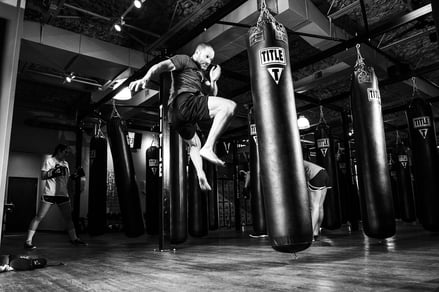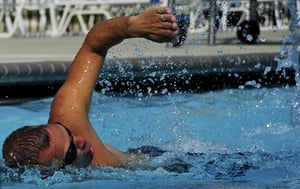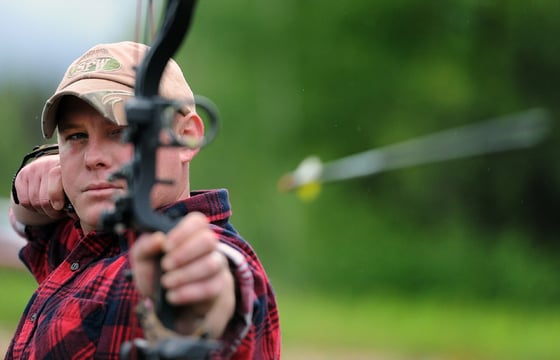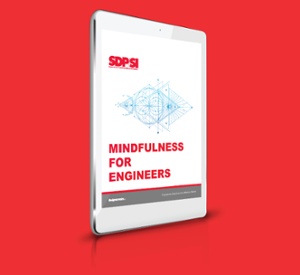Skills are assets, and they are how most people make a living. We go to school, learn a trade,...
How to Learn and Practice Skills
Skills are assets, and they are how most people make a living. We go to school, learn a trade, acquire experiences and then give our time in exchange for money. The amount of money we earn for our time is most likely (but not always) a direct reflection of the “market value” of our skillsets—traditionally speaking. It’s true, “time is money,” but it makes just as much sense to say, “skills are money.” Luckily, obtaining a skill is quite simple in terms of cognitive processing. All one needs is motivation, the ability to learn, and time for practice.
In their book, Practice Perfect, teaching experts (Doug Lemov, Erica Woolway and Katie Yezzi) suggest that the best way to develop skills is by designing a way to practice. Believing that “practice does not make perfect,” the authors posit that “practice makes permanent” because repetition literally encodes the body and mind. Thus, by perfecting practice, we can master a skill.

Are you ready to take your skillset to the next level? Keep reading to find out how priming yourself for perfect learning opportunities and developing a habit of practice are two key ingredients to winning at life. Yes, we said it: WINNING! (No, Charlie Sheen, not that kind of tiger blood.) We are talking about winning the race, winning the promotion, winning over the relationship roller coaster. Winning at life is a personal experience, and only you as an individual, can define what it means to win. Best of all, you don’t have to be perfect to win at life, you just have to know the fundamentals of what it takes to design a perfect way to practice.
How Humans Learn
First, we need to understand a bit about how our brains process learning experiences. Although people learn in slightly different ways, their brains absorb information very similarly. Generally, visual information is the most effective tool for learning, because a large portion (30%) of the brain’s cortex comprises neurons that function as visual processors, turning what we see into information.
Vision is the most acute of all our senses (relative to learning), thus being a significant determinant of how we interpret the world around us. Additionally, the brain regards letters and numbers as images, making reading less efficient than pictures when it comes to information processing. Our brains pay special attention to pictures and animations; photos, pictures, flash cards, diagrams and colors enhance learning experiences. This is, perhaps, the strongest argument for learning with a diagram or picture and referring to it frequently.
The brain’s natural tendency is to focus on the “big picture” more than details, so it is helpful for learners to refer to the overarching theme or topic when they are presented with many details. Studies show that new information is more likely to “stick” if the brain can relate it to something it already knows. As the brain is presented with more and more related concepts, each links to existing information or experiences.

Optimize learning the same way a tiger would eat an elephant—one bite at a time, building bits of information one piece on top of another. Speed up the process by frequently referring to visual aids, and mix up the mediums so you’re engaging all the senses. Many people find it helpful to know their style of learning, even though the theory of “learning styles” has been debunked in recent studies. Nevertheless, just do what works best for you!
How Humans Remember
If skills are what you need to level-up a career, relationship or your personal development, then it’s vital you pay attention to this section. Learning and remembering are two different things. Learning scenarios only have a small potential to turn into knowing; one must recall what was learned to actually gain the knowledge and put it into practice. This is the tricky part, because humans tend to forget 90% of what they learn within one month (more like 7 – 20 days)! Remembering and recalling what you learn is the most difficult part of gaining knowledge and skill, so read up on our advice for improving your memory, because there are many factors playing into memory capacity that we cannot cover here.
To know something, that is learning and remembering it, is a three-phase process:
- Acquisition – the introduction of new information into the brain
- Consolidation – the process of memory stabilization
- Recall – the ability to access information after it has been stored
Good Sleep = Winning!
Acquisition and recall occur while the body is awake, but consolidation happens during sleep when the brain makes neural connections between recently stored information and previously acquired information. Learning is directly related to sleep quality because sleeping is necessary for the brain to store information. In fact, sleep deprivation within 30 hours after a learning experience, consequentially, leads to no newly acquired knowledge, according to a study at Harvard Medical School. Sleep deprived brains absorb half as much information, due to over-worked neurons failing to make connections and correlations between data.
Two types of memory recall are related to learning skills: 1. declarative memory is knowledge of fact-based information, like the United States capital is Washington, DC; 2. procedural memory is recalling how to do something, such as riding a bicycle. Some experts believe that brainwave characteristics during different sleep stages are responsible for forming types of memories. REM sleep, for example, is critical for consolidating procedural memories. Leaning motor skills seems to depend on the amount of light sleep, while certain types of visual learning depends on both deep, slow-wave sleep (SWS) and REM sleep.

Good sleep helps improve memory, and it’s essential to having a quality learning experience. Other factors, like diet and exercise also increase memory retention, but sleeping 7 to 9 hours per night is paramount for improvement, especially before and after learning or practicing scenarios.
How Humans Master Skills
Now that you know what it takes to optimize learning scenarios and memory retention, let’s move onto designing a practice, like the authors of Practice Perfect suggest. First, consider the value of what you’re practicing. Do you truly want to develop a skill for your career toolkit, or do you want to learn pickleball for social gatherings? Either way, be realistic about what you want to achieve. By weighing time and effort against overall value, you can make logical decisions about what you’re willing to invest.
Get Serious About Winning!
Developing great skills requires an existing strength in that area; it’s easier to capitalize on strengths than it is to gain high-level skill in an area of weakness, after all. Chances are you will never become exceptional at performing a skill in which you do not already have a natural or trained inclination. For example, if you want to become a great guitarist, but have no musical talent or previous knowledge, does it make sense to invest in learning guitar? If you can gain enough intrinsic value from the accomplishment, then sure, learn the guitar! But do not expect to become the next Santana. Purpose and desire are not enough to develop superpowers. It takes leveraging natural strengths to build really impressive skillsets.
1. Plan a Practice
Great practices depend on great planning. Try a GSTIC framework to help establish a birds-eye-view of what the process looks like. This simple mnemonic will help outline the big picture:
G – Goals
S – Strategy
T – Tactics
I – Implementation
C – Conclusion
GSTIC is a simple but practical format to clarify a plan of action. Planning from beginning to end will help identify some of the challenges that will arise before take-off. Clearly outline specific, measurable goals. Then, describe the overarching plan of how to get there (strategy), define the actions it will take (tactics), and schedule it into a routine (implementation). Analyze, adjust and repeat until reaching your goal (conclusion).
Create plans with data-driven objectives, detail activities down to the last minute, then rehearse and revise. Every moment is precious, so find efficiencies and make them a routine part of practice. Model your area of practice after someone else. Many people resist imitating others, thinking it’s cheating or uncreative, but sometimes this is the best way to learn.
Finally, involve others in your goals and plan of action. Feeling like a winner is difficult if you’re in it alone. Tell people your plans, get family and friends interested, find a local organization or group of individuals. If you are practicing a job skill, involve your coworkers and find a senior-level employee to offer mentoring sessions. Sharing your desires and plans not only creates a supporting network but also holds you accountable to your own goals.
2. Visualize and Feel
Model the process of how to achieve as well as the achievement itself. Remember that visualization is the most powerful sense for learning? Imagine what it is like to be perfect at your practice. See yourself winning, and make yourself believe it. The feeling of self-belief is powerful. Now, combine that with visualization and you’re ready for the world championships. It’s true, visualization is the next best thing to practicing. In a study, Olympic athletes who were unable to play their sport for a period of time visualized themselves practicing, and when they returned to the game some participants actually improved while others stayed relatively the same. Whereas, the athletes who did not practice or visualize practicing while they were unable to play, showed digression in their skills when returning to the sport. Never underestimate the power of imagination.
3. Master the Drills
The skills needed to achieve your goal are not always obvious. If your desired skill is uncommon, you might need to become a detective; watch, gather data, analyze, and scrutinize. Start with tutorials on YouTube, then watch others perform the same task and notice every detail. Break down complex skills into narrow steps, modeling each part separately. New skills are best taught and practiced in isolation. Hone skills with drills. Challenge yourself to define small, specific skills and to craft precise drills for each.
For example, highly proficient program developers and graphic designers have all mastered one thing: shortcut keys. By memorizing shortcuts on the keyboard and rehearsing them over and over, they become incredibly efficient creators, taking less than half the time to code and design compared to those using a mouse. You see, that one simple skill of using keyboard shortcuts defines the top 20% most efficient programmers/designers. Breaking up big tasks into small drills is the only path to mastery; and it might not be as difficult or complex as you think. It could be as simple as memorizing shortcut keys.
After initial mastery, weave together multiple skills in increasingly complex environments and situations. Practice getting it right. Avoid frustration and burnout by focusing rehearsals on measurable and manageable objectives, like time limit, repetitions, or level of quality. Work at mastering the small exercises before adding complexity, allowing yourself many wins before trying to do more than you can successfully execute, because failure builds character better than it builds skills.
Perfect the fundamentals to optimize learning the next steps. You can’t do higher level work if you are wasting brain power rehashing the basics. Building skill is a process of layering one drill on top of the other, and if you keep building without securing the fundamentals, your end-result will be less than impressive. Singing is a perfect example. Singers start out practicing scales, they are the most basic vocal exercise. It can hardly be considered singing at all, it’s more like “tuning the instrument.” But even the professionals practice scales every day, too, just like the beginners. The famous Tony Bennett once told the New Yorker Magazine, “The first day you don't do the scales, you know. The second day, the musicians know. The third day, the audience knows." Perfecting the basics might be the most difficult phase of skill development, but if you can do that, you’re already half way to WINNING!
Tip: Need to speed up the process? Get on the fast track by narrowing your focus on the most critical aspects of the skill. Adhering to the 80/20 rule, that means spending 80% of your time practicing the top 20% most important things.

4. Improve from Feedback
Feedback is a tool for building strengths and repairing weaknesses, and it’s a requirement for “getting to the next level.” Make feedback part of your practice plan, and determine the “who,” “what,” “how,” and “when” to get the most productive feedback. If you’re not working with a coach, ask your judge or spectator very specific questions, have them take notes, or precompose an evaluation sheet for them. It might seem silly, but valuable feedback is the difference between “good” and “great”.
It’s one thing to accept feedback; it’s another to use it. So, take notes with an open mind. Create an environment where you’re secure enough to receive criticism from others. If you’re working solo, find a peer or mentor who is willing to offer honest, helpful advice. Get over any fears of criticism or rejection. Greatness grows out of pain-points, so remember that the biggest improvements happen when facing pain and failure.
 Self-reflection is worthwhile, even keeping a journal can serve you down the road, but nothing beat feedback from others. Also, try getting feedback right away, it works best when used immediately— timing of feedback beats strength of feedback every time, because the brain’s “information processing center” makes the deepest learning connections if it can “sleep on it” within several hours. (Remember that part about learning, memory and sleep?) So, time is of the essence when it comes to skill development. Whether it’s acquiring a skill to advance in the workplace or learning a new card game, the sooner, the better.
Self-reflection is worthwhile, even keeping a journal can serve you down the road, but nothing beat feedback from others. Also, try getting feedback right away, it works best when used immediately— timing of feedback beats strength of feedback every time, because the brain’s “information processing center” makes the deepest learning connections if it can “sleep on it” within several hours. (Remember that part about learning, memory and sleep?) So, time is of the essence when it comes to skill development. Whether it’s acquiring a skill to advance in the workplace or learning a new card game, the sooner, the better.
All practice doesn’t make perfect; but perfect practice just might be the key to WINNING!!
Want more tips and techniques to achieving greatness?? Download our guide, Mindfulness Meditation for Engineers.




